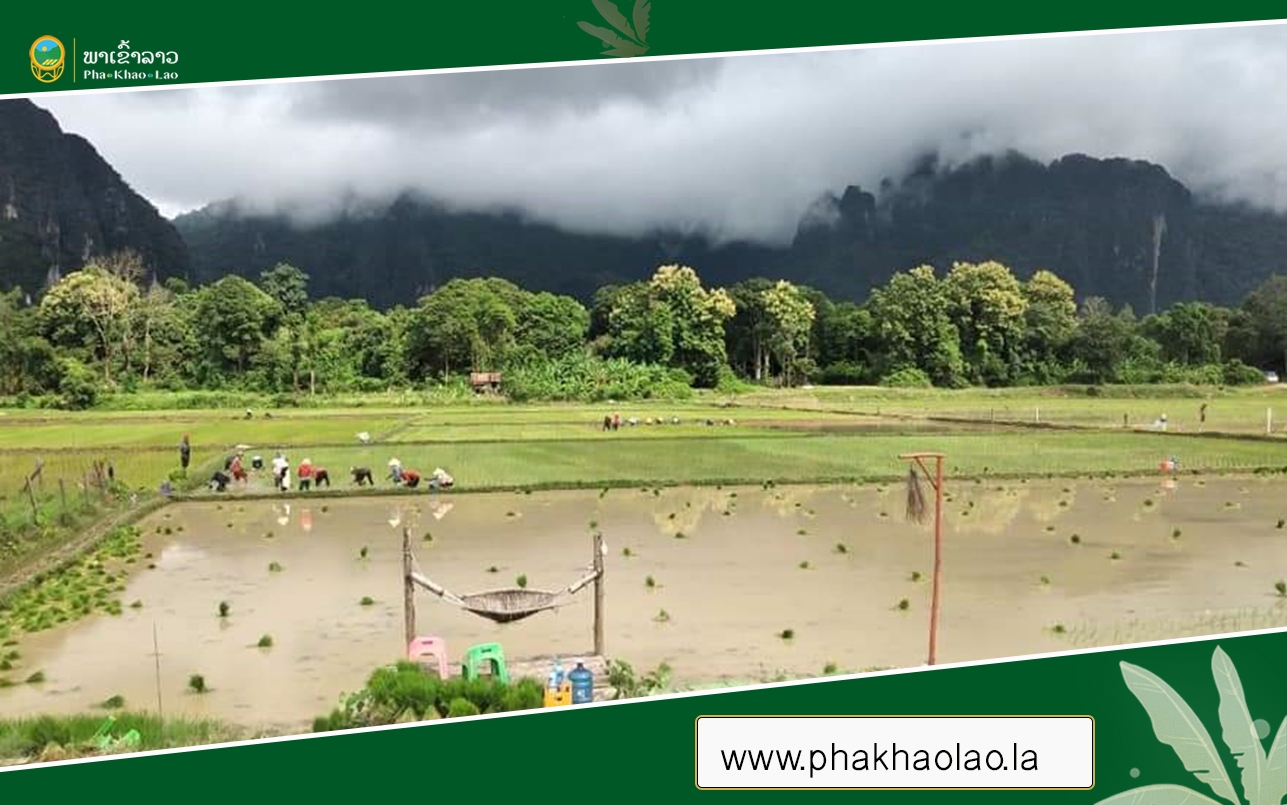
The Research Institute for Agriculture, Forestry and Rural Development has certificated the new rice seed varieties Hom Dorkkham 8, Hom Dorkkham 15 and Hom Xebangfay 4 as being resilient to environmental changes.
Hom Xebangfay 4 is a newly developed variety that has been improved to fragrant resistant to flooding resistant to leaf blight stem rot and dry edge disease but still maintains its original characteristics.
Hom Dorkkham 15 is a newly developed variety that is fragrant resistant to flooding resistant to leaf blight stem rot disease and dry edge disease and can be planted in both the dry and rainy seasons.
Research on rice seed development at the institute is taking place in collaboration with Thailand’s National Institute of Science and Technology from 2009-2022.
Officials at the research institute in Laos said changes in weather patterns have affected rice production in laos and other Asian countries.
In particular floods and drought have become a limitation in rice production and have resulted in reduced crop yields of 10-20 percent in Laos.
Scientists predict that in any 10 years the average global temperature will rise by 1 degree and that in the next 80 years the global temperature will rise by 8 degrees This could mean that rice production in Asian including Laos will fall by 50 percent while the population will increase.
This mean that countries must carry out more research on new rice varieties that are resilient to floods drought disease and insect pests.
More resilient strains are essential for the stability of domestic rice production and to ensure food security.
The Research Institute for Agriculture forestry and Rural Development and the Ministry of Agriculture Development now rice seed varieties to the seed bank to improve farmers’ chances of the good harvest despite weather extremes.
The research institute’s seed development plan for 2022-2030 includes developing resilient varieties of brown rice that maintain their fragrance but are resistant to flooding leaf burn leaf rot and dry edge disease.
The institute is carrying out studies on yields with new rice strains to be tested locally in 2023 and submitted for registration in 2025.


